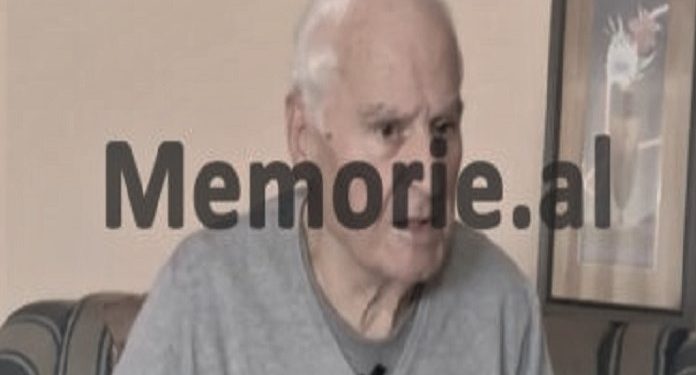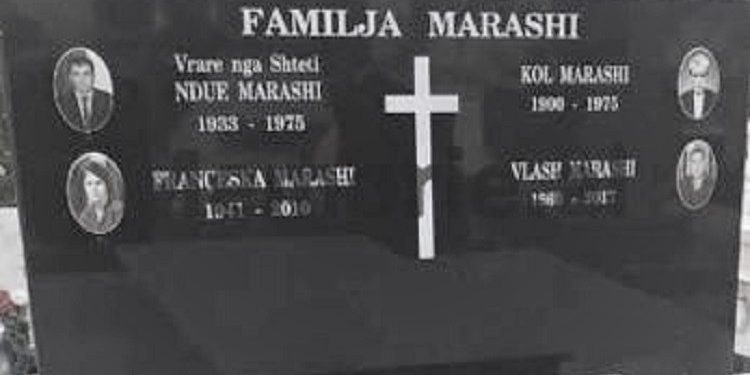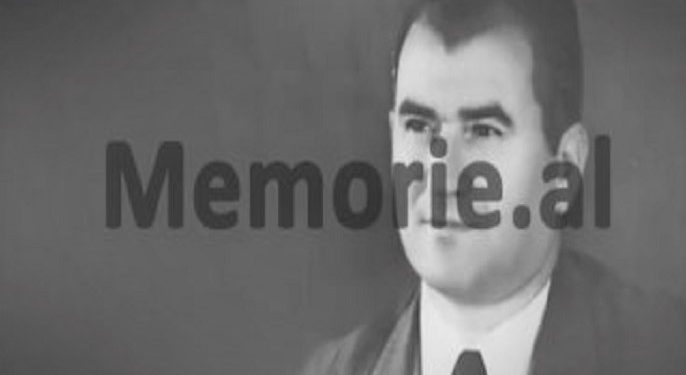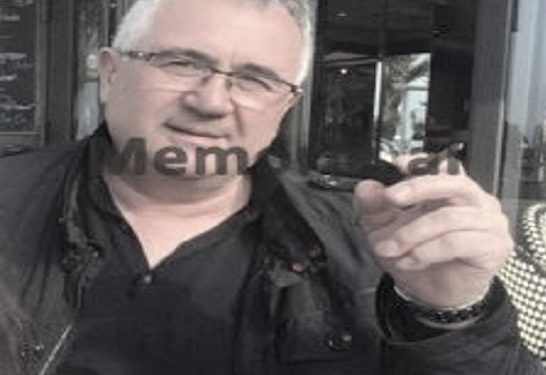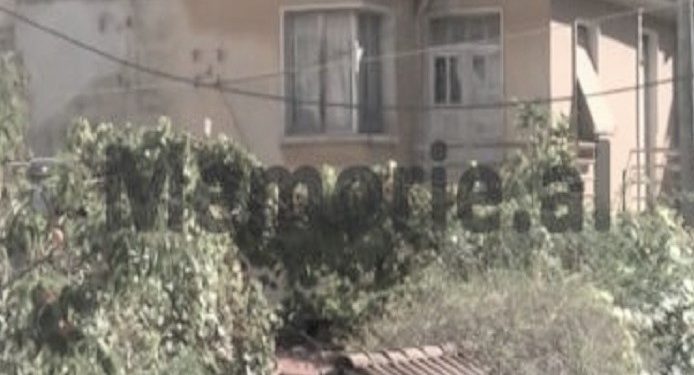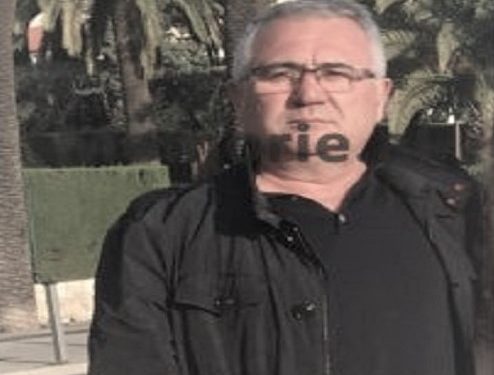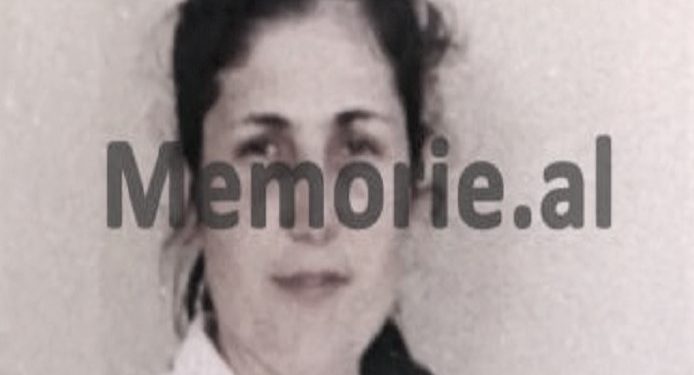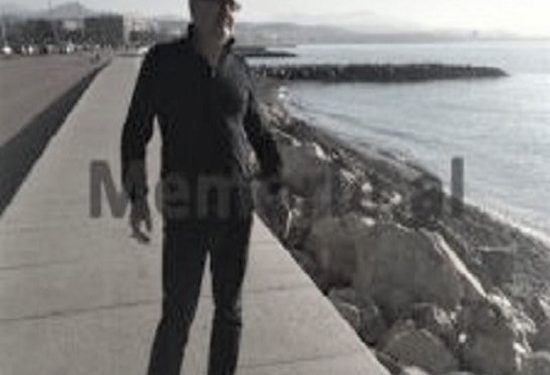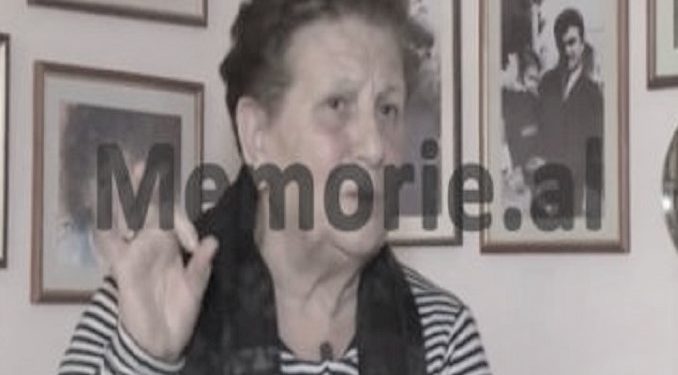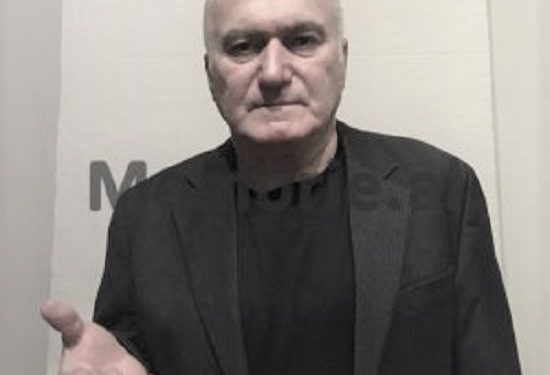Dashnor Kaloçi
Part six
Memorie.al/ publishes the unknown story of Ndue Marashi, former Chairman of the Executive Committee of Tirana, member of the People’s Assembly and member of the Central Committee of the ALP, who on December 16, 1975, was found dead by a pistol bullet in one of the rooms of his villa (at the “Red School”), the circumstances of which have not been clarified even today after 45 years?!
Rare testimony of his son, 62-year-old Xhovalin Marashi who has lived in Belgium for years, who testifies for the first time publicly, the whole unknown story of his father and the Marashi family, starting from: their origin, arrival in Tirana, work, education, graduation and career of Ndue first in Kamza and then in the Kashar cooperative, the Party Committee of the Region no. 4 and then as Chairman of the Executive Committee of Tirana, where he served from 1973 until December 16, 1975, when Xhovalini and his younger brother, Vlash, found their bloodied father in the last minutes of life and the bus that we announced by phone, came after only 45 minutes ?!
Xhovalini’s story about the friendships that their father had with a part of the senior leadership such as: Beqir Balluku, Abdyl Këllezi, Fadil Paçrami and Myslym Peza, or others with lower positions and functions such as: Irakli Bozo, Abedin Çiçi, Mark Dodani, Hazbi Lamçe, Demlush Thaçi, Fadil Lamin, Halim Stërmasi, Ilir Gjylbegu, Panajot Pano, Fatmir Frashëri, Bert Jashari, Miti Dheodhosi etc.
How was the execution scheme of Ndue Marashi carried out, who were the people who attacked him in the Politburo and those whom the State Security committed to his physical elimination and why his son, Xovalini, rules out that it was done with the knowledge of Enver Hoxha, who is said to be one of the people who loved Ndue very much and he together with Nexhmija and their son, Iliri, have done a lot for the Marashi family, starting from… ?!
After the publication of several articles by Memorie.al in the last two issues, regarding the story of the former Chairman of the Executive Committee of Tirana, member of the Central Committee of the ALP and member of the People’s Assembly, Ndue Marashi, who for 45 years Earlier, at noon on December 16, 1975, he was found dead in one of the rooms of his villa, which is still located somewhere near the “Red School”, where according to the official version, given by the press release that was published the next day in the press, he had committed suicide, Memorie.al returns to this story.
This serious event, which did not go unnoticed even at the time it happened, as we refer to the official version, was the first time after many years that a suicide took place by a senior state official, (we have in mind, in in 1947 Nako Spiron, former Chairman of the State Planning Commission, who ‘de jure’, was the Prime Minister of the country and then in 1956, Omer Nishani, the President of Albania, or as he was called at the time, the Chairman of the Presidium of People’s Assembly), and according to communist morality, as well as the laws in force, suicide was considered a hostile act and the person who did so, especially when in office, was at best considered a “defeatist and capitulator”, otherwise was labeled as: “traitor and enemy of the people”!
Based on these, Ndue Marashi was not an exception from the communist regime of that time and all the accusations against him as “enemy of the people” etc. fell on him, and his family was expelled from Tirana and persecuted until the collapse of communist regime. Regarding this event and the mysteries, it still carries, it was written only after the ’90s and in 2018, a television documentary was made by the Albanian Public Radio-Television, where family members of Ndue Marashi, gave their related versions with that event.
Given the fact that on December 16, it was 45 years since the day Ndue Marashi lost his life in tragic circumstances and that event still remains shrouded in mystery, Memorie.al was contacted by Mr. Xhovalin Marashi, (Ndue Marashi’s eldest son), who has been living with his family in Belgium for years, who after expressing his thanks to our editorial office for the articles published about his father, was also willing to give a long interview. and exclusive to Memorie.al, making public for the first time, many of the unknown sides of that story related to the name of Ndue Marashi and their family, an interview which we are publishing starting from this issue.
Continues from the last number
Mr. Xhovalin, after those problems that you initially had when you were sent to Tapiza, such as the difficult economic situation and health problems that your mother, Francesca, had, leading to a suicide attempt, but then how did your family’s life there in that village on the outskirts of Tirana, did you have more problems and did they fight you like the family of the “enemy of the people”, Ndue Marashi ?!
From the beginning I am telling you that during those 15 years that we lived in Tapiza as convicts, we washed the streets of that village with tears (even though we tried to keep ourselves from weakening our mother), as the problems did not come to us separated until the day we all as a family entered the embassies and left Albania in July 1990. So, for 15 years, where more and where less, we have suffered a lot, especially the first years. But then we also grew up and started to become more able to work and also to understand some things better. After going to Tapiza, the first thing that weighed on us the most, was what I told you above in this interview, that is, the 42,000 lek (old) bill that our friend Katina Starja brought us, which my mother initially hesitated to accepted, not only for the fact that we had nothing to pay for it (because as I told them we were without bread and he brought us, aunt, Teresa, some food and gave us some money from the disability pension), but because that was all unfair. At first my mother wanted to go and complain, but a very good man, Sokol Uka, persuaded my mother, explaining that those who had sent the bill had thought it through and would not expect us to complain., to cancel that payment. Sokoli said bluntly to his mother: “Pay my Czech, they would put you in jail and…”, so we were forced to sign that document, where every month we left half of the salary because of Katina Starje.
In addition to these economic problems, were there people who attacked or provoked you to punish you?
We had a lot of provocations from different people who were taught and encouraged by a State Security Operational Worker, called SS, a real killer, a born criminal, who left nothing unattended just to introduce us in prison. He did his best to punish us, especially Luli, the younger brother, because he thought it would be easier with him. The S.S. ordered those of the cooperative to keep our salaries and to record as little income as possible so that we could utter a word and punish them for agitation and propaganda. But we knew and were very careful, and we did not give him the opportunity to accuse and punish us, even though he left nothing to be done to punish us. But fortunately, after a few years, he was removed from there and replaced by Ndue Gega (son of Frrok Pjetër Gega, former Deputy Minister of Internal Affairs), who, to be fair, no not only did he not harass us at all, but on the contrary he took us under his protection and did not consider the denunciations that were made against us from time to time. So, if the transfer of S.S. had not taken place, and the arrival of Ndue Gega there, we would have ended up in prison. Also, during our stay in Tapiza, some other people have helped and supported us a lot, such as: Riza Tafa, Maliq Tafa, Besnik Vraja, Tit Vraja, Dyl Vraja, Saba Vraja, Cil Vraja, Ramiz Vraja, Xhemal Vraja, Dane Gjoka, Agim Beshiri, who came to our defense. saving us even from prison. I also remember that when our grandmother died in Tapiza (mother’s mother), all the villagers of that area came and honored her, then we sent her to her house in Tirana (which was closed), where she almost came again. the whole neighborhood honored him, whereas always were: the Nallbani family, with Shefqet Nallbani at the helm, (the uncle of our close friend, Fatos Kaceli, who smashed the Italian embassy by truck), as well as the Zenuni family, (all without exception), Meti, Gimi, Beni, Shaba, Nandi etc. But the problems were not shared with me even during the period of military service, where they again tried to punish me, provoking me almost every day.
Where do you perform military service?
The military service I did in Genoa (where as it is known they were soldiers with biographical problems), where every morning the commander of the unit came and to provoke me, he said: “The dictatorship of the proletariat beheads anyone who rebels against her “. Likewise, three days before his release, he cut off zero for me and some of my friends, such as: Nazmi Harizi, Aleksandër Pisha, Ylli Leka, Apollon Zenuni and the desolate Kujtim Xhaja, who was killed at the border Librazhd), a few months before the embassies opened, leaving his wife alone with a little girl and children in her womb. (Apollon Zenun and Kujtim, had been put in political prison, just because they were my friends).
What about your brother, Luli, where did you do your military service and did you have any problems?
Luli also served in the military in Xhenjo, but in the town of Laç i Kurbinit, where in addition to some of his wonderful friends, soldiers with biographical problems, such as Devi Llagami (son of Fiqri Llagami, former journalist of Zog), Sander Meçe (son of Ali Meçe, former Commissar of the United School), etc., Luli was fortunate to be supported and kept close by a group of boys from the city of Laç, such as: Sandër Shllaku, Tonin Prela, Edmond Qesja, Bashkim Curri , Fatos Sanxhaku, Agim Curri, Agim Duro, Sadedin Zavalani, Fatos Kokalari, Sokrat Zhango, Shkëlqim Haxhi Hoxha, Pëllumb Yzeiri, etc., where most of them were footballers of the “Industrali” team. Given the fact that Luli was a talented footballer, with the intervention of these friends, (who loved and respected him, not like the son of the former Chairman of the Executive Committee of Tirana, who had already been declared “enemy of the people”, but as if, the father was still the Chairman of the Committee in Tirana), the coach of the Laç team, Ndue Tarazhi, did his best to get him in the team, but he could not, because the shadow of our father, Ndue Marashi, who followed us everywhere , followed Luli to Laç. But even though Luli did not manage to be active with Laçi’s team, he spent those two years without any problems and escaped without being imprisoned (in that ward where many soldiers were convicted), also thanks to the close company he had with Agim Duron, whose father, Hajriu, was Secretary of the Party Committee of the 6136th Brigade, where Luli was a soldier.
What about your relatives, ie family members from mother and father, did they have problems after what happened to your father, Ndue Marashi and your family deportation to Tapiza?
Everyone suffered. As I told them, the first to suffer was Zef Marashi, our uncle, who was brought with us as a family immediately to Tapiza, on December 26, 1975. Then my two uncles, Andon Doçi and Zef Doçi, were arrested, who put them in political prison, accusing them of: “agitation and propaganda against popular power”, etc. Andoni, who was 39 years old, was sentenced to eight years, while Zefi, who was only 21 years old, was initially sentenced to be shot, then reduced to 25 years in prison. During his time in prison, only our mother, Francesca, and her aunt, Martha, went every two months to meet her uncles in prison in Spaç and to get some food. Marta and I once went to meet my uncles in Spaç, but when they saw my passport, they did not allow me, telling me that I needed a special permit from the Ministry of Internal Affairs in Tirana, to which I had to apply. The Security Operative and the People’s Council, where we lived in Tapiza, which was unachievable. When uncle entered the prison, we took the grandmother to our house in Tapiza, where she died shortly after of mourning for her son. The desolate grandmother, when she lived with us in Tapiza, was standing on the steps of the house and waiting for me and Luli to come home from work, as she was afraid that we would be arrested, just like her two sons, our uncles, Andonin and Zefi. Likewise, my aunt, Marta, with her three small children, stayed with us in Tapiza, rather than in her house in Tirana, with the concern to help us and to be as close to us as possible. In 1986, when our grandfather was interned by his mother (Kola, Francesca’s father), his son, our uncle, Aleksandri, left Tirana and came to us in Tapiza, telling me: “Leave, we are leaving for Velipoja , we run away… ”, as I had asked for that a long time ago, because we saw ourselves without any perspective.
What about you, how did you respond, did you accept?
I did not accept because it was impossible, because Grandpa Kola, that day they had just communicated the internment and Aleksandar, was being pursued by the police, while we were under surveillance and practically that thing could not be done that day. So, I was forced and told Alexander to leave for Tirana again. Only 30 minutes after Alexander had left, the Deputy Minister of Internal Affairs himself arrived, accompanied by the police and State Security forces, who made a spectacular arrest of me, Farnceska and Luli’s mother, tying us to bars and they put us each in a separate car. After that, they sent us to Tirana, to the Directorate of Internal Affairs, where they interrogated us, putting pressure on us to show where we had hidden, Uncle Aleksandar. But shortly before the police and Security came to arrest us, I had told my mother and Luli about the meeting with Sandri and the three of us fell into a word so as not to show that he had been there.
What happened to you next?
They continued the pressure, especially with Francesca, to whom they said, “We will kill the two boys, if you did not tell me where Alexander is,” and she would respond, saying, “You have killed my sons and me. “from the day you killed their father.” After that, the Security Operational Worker, Ndue Gega, our benefactor, came there and asked Luli (making signs), where Alexander could be and Luli told him, to see that he should be at his aunt in Tirana, which did not penalize Sandri, so he did not want to escape. Indeed, after 10 minutes, they found Sandri there and took him, and they came to take us out, telling us that we would wait a while for the cars that would take us to Tapiza to come. But we did not accept, telling them that we were leaving on our own and went out in Tirana barefoot (without sandals, as we had been arrested) and only with canoes, and when we arrived in Tapiza, the whole village came to meet us with the joy that we were released.
Uncles, Andoni and Zefi, when were they released from prison?
The uncles were released from prison two days after we entered the embassy, in July 1990, and Andoni passed away in 2018, from a severe depression he had experienced from the torture they had suffered as soon as he entered prison, (where from 120 kg. came out 58 kg.) and during all those years lived anxiously, not being able to stay at home, because he was afraid that he would be arrested again!
Other one of your relatives, did you have any problems?
Yes, they had, my aunt (mother’s sister), on Tuesday she was fired and her husband, Kosta Pleqi, a senior officer in the Navy, after he was expelled from the party (which as you know at the time was considered “shooting” political”), transferred him to the district of Lezha, appointing him to the lowest position that an officer could have, as a platoon commander. But not only our relatives had problems, both from mom and dad, but also ex-friends and friends of dad, even to our neighbors in Tirana, with whom we had family entrances and exits, some of whom were also sentenced to political prison. So, who more and who less, all the friends of our family, had problems after the event that happened to our father, Ndue Marashi.
Specifically, remember any of them and what problem did they have?
The closest circle of our family, were Shuaip Dibra with his wife, Agime, (both originally from Shkodra), with whom we were also neighbors and the doors of our houses were open to each other. Shuaipi was a lawyer and a member of the People’s Assembly of Albania, as Director of the Directorate of Legality. The night before our father’s event took place, on December 25, 1975, the father, Nduja, was at their house and stayed there talking only with Shuaip for more than two hours, but what they talked about they with each other, we could never learn. In addition to the Dibra family, we had neighbors and we got along very well with the Sheshi family (with Shefqet Sheshi and his brothers, all wonderful people), as well as with the family of Vasil Mic, with the Akshia family, (Sul Akshia, hardworking and wonderful people), with Myslym Qefalia, (excellent man), with Perikli Dhales and his wife Donika, with Halit Distafa, (very good man), with the famous doctor. Dr. Prof. Hamdi Sulçebe, (who cured and healed our brother, Luli, who had an enlarged heart), with Fet Tufina, (a very, very good man), with Haxhi Muka, (chairman of the Shengjergj Agricultural Cooperative), who father, Nduja had proposed him for “Hero of Socialist Labor”, and many, many others, but measures were taken against those I mentioned, ending up in prison, without doing anything, but were convicted as friends of Ndue Marashi.
Who was sentenced to prison by those you mentioned?
Fet Tufina was sentenced to 8 years in prison, his son, Ben Tufina also ended up in prison, Haxhi Muka, Bajram Muka, Shefqet Sheshi, Fadil Lami, I do not remember exactly how many, but many years in prison. The Sheshi family were disguised, just for the fact that their mother, Ija, in addition to the conversation she had with her father, Nduen, before he entered the house, she had also shown that she had seen two Republic Guard soldiers coming out of our villas, who had told her: “Get inside my witch”), while she had heard the gunshot that took the life of our father, Ndues.
Going back to your family life in Tapiza, where a little above you said that your problems continued until the fall of the communist regime?
Yes, what I said a little above is more than true, so that our problems were not shared until 1990, when the embassies were opened and we all left Albania as a family, after we had entered the Italian embassy and went to Italy.
What about Italy, how did your life go?
With the help of the Italian government, we were given the opportunity to continue and finish high schools, which in Albania were deprived of us as we know for biographical reasons. I graduated in Business Management, while my wife, Rina Uka Marashi (whom I had kidnapped since we were in Tapiza, as her family did not want from our biography), graduated in Teacher. Likewise, after leaving Italy and settling in Belgium (where, thanks to the respect shown to us by the Belgian government, we were arranged), our mother, Francesca, lived with me, being quite satisfied, until the day she closed her eyes. Likewise, my brother, Luli, has lived for many years in France, where he had set up a transport company and worked there until the day he passed away. My eldest son, Anthony, graduated in Medicine and works in a hospital, and my daughter, Michelle, is a bank manager (but has a penchant for music and composing), and my second son, whom I named, Angelo-Francesco (in honor of his mother), graduated in Economics, Faculty of Financial Sciences, at one of the most famous universities in the world. The three children did not pay anything to attend school and everything was done with the support of the Belgian government. I mentioned all this, to show and compare with what we went through in Albania. /Memorie.al





